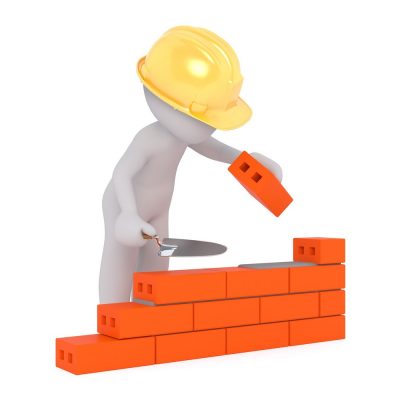Things you need to know about structural warranties, House building guide, Home design tips, Property advice
Know About Structural Warranties
21 Mar 2023
Structural warranties are immensely useful resources. Still, one shouldn’t stumble into them blindly.
Fortunately, structural warranties are for many types of people. Homeowners, developers, and mortgage lenders – they all need this coverage at some point or even during multiple stages if they’re constantly doing business with different parties. So, given that these resources are so useful to so many, it only makes sense to learn more about them.
Even if you have some knowledge of structural warranties, there may still be some limitations to your awareness. So, even in those situations, it can be worth revisiting the subject to see if you can navigate this arena with as little fuss as possible.
Below, we’ve listed some of the things you need to know about structural warranties. Take a look!
Things You Need To Know About Structural Warranties
There are Lots Of Them
You’re probably not surprised to learn that multiple structural warranties exist. Not all of them will pertain to your circumstances, but it can still be helpful to decipher what they are and how they’re used.
We won’t go through all of them here, but a range exists. They include:
- Commercial housing warranties – protects buildings constructed for business use and can be taken out by the developer or owner.
- Social housing warranties – protects converted properties or newly built properties for more affordable living conditions. Sometimes features as part of a shared ownership scheme.
- Self-build warranties – usually protects self-built property for a fixed term of 10 years (though some can do as much as 12) once the construction is complete. In other circumstances, it can be used as a backup plan if your contractors encounter certain difficulties like liquidation.
- New build warranties – protects properties against poor workmanship and defects, like all the other warranties. However, it should be noted that these policies don’t typically cover damage caused by other factors, like weather, natural disasters, and general wear and tear. Still, issues with new builds can be common, so coverage is key!
- Conversion warranties – protects ex-commercial properties being transformed for residential use. More specific types of warranties can be offshoots of this, such as the barn conversion warranty.
As you can probably guess, these warranties cover ‘latent defects’. That is to say, the cost of any repairs is accounted for so long as an inspection couldn’t reasonably discover the faults in question during a sale. Many property problems don’t become apparent until years after project completion, so these types of safeguards certainly have their uses.
Brokers Are Highly Recommended
There are many providers of various structural warranties. Some will undoubtedly be more ideal for your purposes than others.
While you could search the market for the best deal possible, few would advise you. There are many choices, and without sufficient industry knowledge, you might not even be fully aware of what a good quote looks like. What would you compare it to?
Therefore, it’s recommended that you enlist the services of an experienced broker instead. These entities should have decades of experience under their belts so that you can be confident of their expertise. They’ll know where to search for the best quotes on your behalf and work tirelessly to secure a good deal for you.
You can benefit from these types of services at buildsafe.co.uk. They get the most competitive price for every building warranty and have over 40 years of experience. Moreover, they understand just how fast-moving the market is and have all the talent required to keep pace with every change. Policies and providers are always best suited to the client’s schemes, so there’s no reason for doubt here.
Structural Warranties Are Essential
There is no law in place making structural warranties mandatory. However, they’re still vital requirements for a few different reasons.
The first reason they’re needed is that mortgage lenders won’t often pump money into properties without structural warranties. For them, it’s an investment, and any safeguards that protect their interests inch them closer to sealing each deal. Moreover, lenders are currently tightening their rules in many ways, so anything you can do to please them is advised!
The second reason is an extension of the first; selling a property becomes nigh-on impossible if a structural warranty isn’t in place, especially if it was built within the last decade. For developers, a huge part of earning the trust of their consumers comes down to the warranties they have in place. Business prospects can be shattered without these measures.
The third reason structural warranties are essential is that they cover the costs of repairs. Funding these fixes oneself, whether as an individual or a prolific developer, can incur extraordinary expenses. Many go bankrupt for even trying to juggle things here, so structural warranties protect everybody’s interests equally and ensure all is well, even when a property is in disrepair.
The fourth reason is simpler, though still undoubtedly worth mentioning; structural warranties bring peace of mind. Going without would surely bring a lot of worry to anybody who wasn’t hopelessly ignorant, so removing that anxiety should be a priority.
Structural Warranties Have Another Name
Some terminology can be confusing if you’re embarking on your first foray into structural warranties. So, let’s decode some of it as a final point.
Most developers, providers, and brokers refer to structural warranties as just that. However, there’s a smaller sub-section of people who instead choose to refer to them as ‘latent defects insurance’. They mean the same thing, and while it’s perhaps not difficult to deduce that alone, it can be when you’re spinning numerous other plates during a construction project.
So, keep it in mind. Given the more common use of ‘structural warranty’, you may not even need to remember. Still, some entities can be stuck in their ways, so to speak, so it’s worth remembering the term’ latent defects insurance’, just in case.
House building warranty Conclusion
As you can see, there’s plenty to remember about structural warranties. Still, the more informed you are, the more confident you can feel when implementing these services. It’s all designed to help you, and the sheer sense of variety and available help are testaments to that. After that, you just need to understand why these measures are essential, and you can start making the most of them!
Comments on this Things You Need To Know About Structural Warranties article are welcome.
Home Improvement
Home Improvement Designs Articles
Planning to remodel your entire home
How to make your property look stunning for buyers
6 Home Improvements That Can Improve Your Health
Building Posts
Residential Architecture
Comments / photos for the Things You Need To Know About Structural Warranties page welcome






